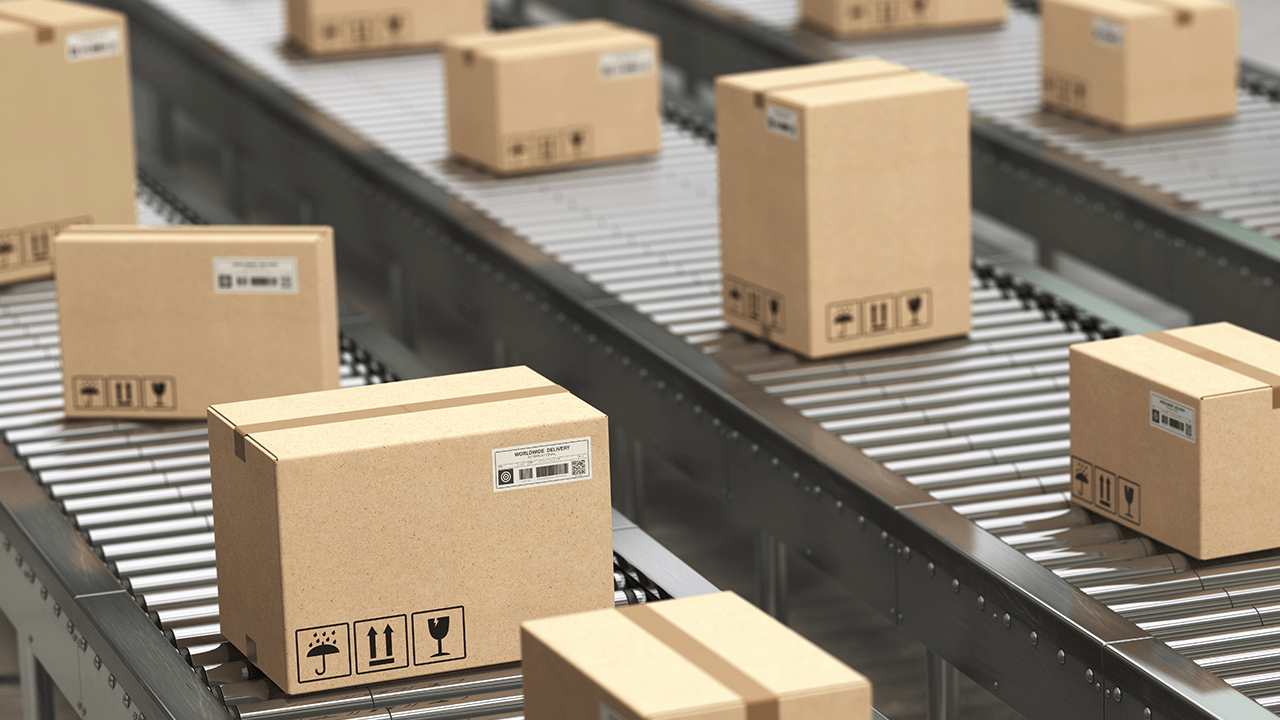Feature your business, services, products, events & news. Submit Website.
Breaking Top Featured Content:
How to Start a Distribution Business

The modern marketplace thrives on the seamless movement of products from manufacturers to consumers, a process made possible by the critical operations of distribution and wholesale companies.
These entities stand as the backbone of commerce, navigating the intricate web of supply and demand.
Entrepreneurs who tap into this sector find themselves at the helm of a dynamic and essential service, facing both vast opportunities and formidable challenges, often starting with understanding how to start a business.

The Distribution Industry
A distribution business acts as an intermediary in the supply chain, moving goods from producers to retailers or directly to customers. Wholesale distributors, in particular, purchase products in bulk from manufacturers and sell them to retailers or other distributors.
At the core of commerce, a successful distribution business ensures that products arrive safely and efficiently at their intended destinations, often navigating complex logistical pathways.
Benefits of Launching a Distribution Company
Embarking on a venture in the distribution industry offers a unique vantage point within the global market.
Entrepreneurs gain insight into the multifaceted nature of transporting goods and the satisfaction of keeping the wheels of commerce turning. In fact, distribution business owners enjoy a variety of benefits, including:
- Diverse Product Handling: Engaging with a wide range of products keeps business operations interesting and diverse. Distributors have the freedom to specialize or expand their portfolios as market trends evolve.
- Supply Chain Significance: Operating a distribution company places you at a pivotal point in the supply chain. Your business becomes essential in bridging the gap between production and market presence.
- Lucrative Partnerships: Building relationships with manufacturers and retailers can lead to profitable, long-term contracts. These partnerships often become the cornerstone of a successful wholesale distribution business.
- Scalability: The distribution sector allows for scalable business growth. Companies can start locally and expand their reach as they establish their networks and increase capacity.
- Technological Integration: Advancements in technology offer distribution businesses tools for efficiency and accuracy. Implementing these technologies can lead to streamlined operations and improved customer satisfaction.

Mapping Out Your Distribution Business Strategy
Entrepreneurs venturing into the distribution sector must navigate a series of strategic decisions that will lay the foundation for their business. From identifying a niche to selecting a location, each choice shapes the future of the enterprise, influencing its growth, operations, and success.
Identify Your Niche and Target Market
Carving out a specific niche within the distribution industry can set a company apart from the competition. By focusing on particular industries, such as the burgeoning balloon business, entrepreneurs can tailor their services to meet unique market needs.
Understanding the target market, especially at the outset, can forge strong relationships with local retailers and retail distributors, offering a focused inventory that caters to their specific demands.
Financial Management
Establishing a robust financial structure for your business is imperative. This includes budgeting, pricing strategies, and securing funding if necessary. It also means exploring tools like business credit cards, which can help manage cash flow and expenses.

Craft Your Wholesale Distribution Business Plan
A comprehensive business plan serves as a roadmap for a distribution company. It outlines the vision, pinpoints the strategy, and is often a requisite for securing investment. This business plan should detail every aspect of the operation, from market analysis to financial projections, providing a clear path forward and a persuasive argument for potential backers.
Obtain the Necessary Business License and Insurance
Legitimacy in the distribution field begins with obtaining the appropriate business licenses and business insurance policies. These critical steps not only comply with legal requirements but also protect the company’s financial well-being.
Proper licensing establishes credibility with partners, while insurance safeguards against the myriad risks associated with the movement and storage of goods.
Choose a Suitable Location for Your Distribution Business
The location of a distribution business is a determinant of its efficiency. Factors such as accessibility to major roads, the capacity for storage, and proximity to transportation hubs like ports and airports are crucial.
The right location can reduce transit times, lower shipping costs, and ultimately enhance customer satisfaction.

Decide on the Scale of Your Distribution Company
Determining the scale of operations is a pivotal decision. Starting small allows for a focused approach, often with lower initial costs and risks. It provides an opportunity to build a solid reputation with local businesses.
Conversely, aiming for a regional or national presence can offer larger revenue streams and a broader market reach but requires more capital and a robust infrastructure from the onset.

Decide on Common Business Structures
Choosing the right ‘common business structures is crucial for tax, financial, and legal considerations. It’s one of the many steps outlined in a comprehensive business startup checklist that can guide new entrepreneurs through the process.
| Steps to Start a Distribution Business | What is it? | Why does it matter? | Tips for Success |
|---|---|---|---|
| Identify Your Niche and Target Market | Focusing on a specific industry and understanding the needs of potential customers. | Ensures product relevance and meets market demand. | Research market trends and establish connections with local retailers first. |
| Craft Your Wholesale Distribution Business Plan | Outlining the vision, strategy, and financial projections of your business. | Acts as a roadmap for your business and is essential for attracting investors. | Make your business plan detailed and adaptable to change. |
| Obtain the Necessary Business License and Insurance | Securing the proper documentation and protection to operate legally and safely. | Protects your business from legal issues and financial risks. | Consult with a legal expert to ensure all requirements are met. |
| Choose a Suitable Location for Your Distribution Business | Selecting a location that offers accessibility and proper facilities for storage and distribution. | Affects operational efficiency and shipping costs. | Look for locations near major transportation hubs and consider future expansion. |
| Decide on the Scale of Your Distribution Company | Determining whether to start locally or expand regionally/nationally from the beginning. | Impacts initial investment, risk, and long-term business strategy. | Start small to manage risks and expand as you establish your brand. |
| Select Products and Inventory Management | Choosing products wisely and managing stock levels to meet demand without overstocking. | Keeps the business running smoothly and prevents capital tie-up in excess inventory. | Use inventory management software to track stock levels in real time. |
| Opt for the Right Distribution Channels | Deciding between direct selling or using intermediaries to reach your customers. | Influences your control over the market and profit margins. | Assess your market reach and resources to choose the most effective channels. |
| ImplementTechnology in Wholesale Distribution | Utilizing software for inventory, CRM, and operations management. | Streamlines processes and increases efficiency. | Stay updated on the latest tech trends and invest in scalable solutions. |
| Understand and Manage Logistics | Coordinating transportation, warehousing, and delivery of goods. | Ensures timely delivery and high customer satisfaction. | Develop contingency plans and maintain good relationships with logistics partners. |
| Build a Brand in the Distribution Industry | Establishing a strong brand presence and reputation. | Differentiates your business in a competitive market. | Consistently deliver on promises and maintain a professional image. |
| Establish Strong B2B Relationships | Creating and maintaining good relationships with suppliers and retailers. | Facilitates a smooth supply chain and can lead to better terms. | Communicate effectively and always seek win-win outcomes. |
| Adapt to Market Changes and Trends | Staying informed about industry shifts and adjusting your business accordingly. | Keeps your business relevant and competitive. | Regularly review industry news and be willing to pivot strategies when necessary. |
How to Start a Distribution Business: Step by Step
Embarking on the journey of starting a distribution business involves meticulous planning and execution. Entrepreneurs must consider each step carefully to transform their business vision into a successful operation.
The process from conceptualization to operation is intricate, requiring a strategic approach to product selection, channel management, technology implementation, and logistics.

Select Products and Inventory Management
The cornerstone of a distribution business is its product selection. Entrepreneurs must choose items that not only align with their niche but also have a steady demand. Effective inventory management is crucial to balance supply with customer demand and avoid overstocking or stockouts.
Establishing strong relationships with suppliers is vital, as these partnerships ensure a reliable flow of products and can often lead to better pricing and terms, which is especially important to wholesale distributors.
Opt for the Right Distribution Channels
The choice between direct and indirect distribution channels can significantly impact a business’s reach and profitability. Direct channels allow for closer customer relationships and higher margins, while indirect channels involving intermediaries can expand a business’s reach without the need for extensive infrastructure.
The decision should align with the company’s scale, target market, and whether the focus is on wholesale or retail distribution.

Implement Technology in Wholesale Distribution
In today’s digital age, technology plays a pivotal role in the efficiency of wholesale distribution operations. From sophisticated inventory management software to customer relationship management systems, technology can streamline processes, reduce errors, and enhance customer satisfaction.
Investing in the right tools is essential for staying competitive and managing the complex demands of wholesale distribution.
Understand and Manage Logistics
The success of a distribution business hinges on its logistics—the art of coordinating transportation, warehousing, and the overall movement of goods. Effective logistics management ensures that products are stored properly, inventory levels are maintained, and items are delivered on time.
A well-oiled logistics operation can become a significant competitive advantage, leading to satisfied customers and repeat business.

Marketing and Expanding Your Wholesale Distribution Business
Marketing serves as the engine for growth in the wholesale distribution company, propelling brand visibility and facilitating expansion. A robust marketing strategy can distinguish a distributor in a competitive market, attracting new partners and opening doors to growth opportunities.

Build a Brand in the Distribution Industry
In the distribution sector, a strong brand is synonymous with trust and reliability. It’s not just about a logo or a company name; it’s about the reputation for delivering on promises and providing consistent quality service.
Strategies to build a brand include developing a professional website, engaging in industry events, and leveraging social media to showcase expertise and thought leadership. A brand that resonates with reliability can become a preferred choice for suppliers and retailers alike.

Establish Strong B2B Relationships
The lifeline of a wholesale distributor is the network of B2B relationships they cultivate. Strong partnerships with suppliers ensure a steady flow of products, while relationships with retailers are crucial for sustained sales.
Effective communication, transparent operations, and reliable service are key to forging these connections. By prioritizing the needs and success of their partners, distributors can create a collaborative ecosystem conducive to shared growth.

Adapt to Market Changes and Trends
The distribution industry is in a constant state of flux, with new trends and market shifts regularly emerging. Staying abreast of these changes is not just beneficial; it’s necessary for survival and growth.
Distributors must be agile and ready to adapt their strategies and operations to meet evolving market demands. Whether it’s embracing new technologies, expanding into new product lines, or adjusting to economic shifts, flexibility and foresight are critical for a distributor’s longevity and success. It also means having a website startup guide to ensure a clear path for your online presence.
FAQs: How to Start a Distribution Business
How much does it cost to start a distribution business?
The cost to start a distribution business can vary widely, typically ranging from $10,000 to $100,000.
This initial investment covers expenses such as leasing a warehouse, purchasing inventory, securing transportation, and obtaining the necessary licenses and insurance.
Costs will fluctuate based on the scale of operations, the type of products distributed, and the chosen location.
Prospective business owners should also account for technology and marketing expenses to fully operationalize their venture.
How do distribution businesses manage large-scale logistics?
Distribution businesses manage large-scale logistics by investing in robust logistics software and technology that optimize routing and inventory management.
These companies often establish partnerships with reliable transportation companies to handle deliveries efficiently. Likewise, they may employ logistics experts to oversee supply chain operations, ensuring goods are stored, handled, and transported effectively.
Strategic planning and real-time data analysis are crucial for managing the complexities of large-scale distribution logistics.
What are the challenges faced by new distribution companies?
New distribution companies often face challenges such as intense competition, the need for substantial capital investment, and the complexity of supply chain management.
They must navigate the intricacies of logistics, maintain cost efficiency, and establish strong relationships with suppliers and customers. Staying current with technological advancements and regulatory changes is vital. These hurdles require strategic planning, market knowledge, and adaptability to overcome successfully.
Image: Envato Elements
This article, “How to Start a Distribution Business” was first published on Small Business Trends
